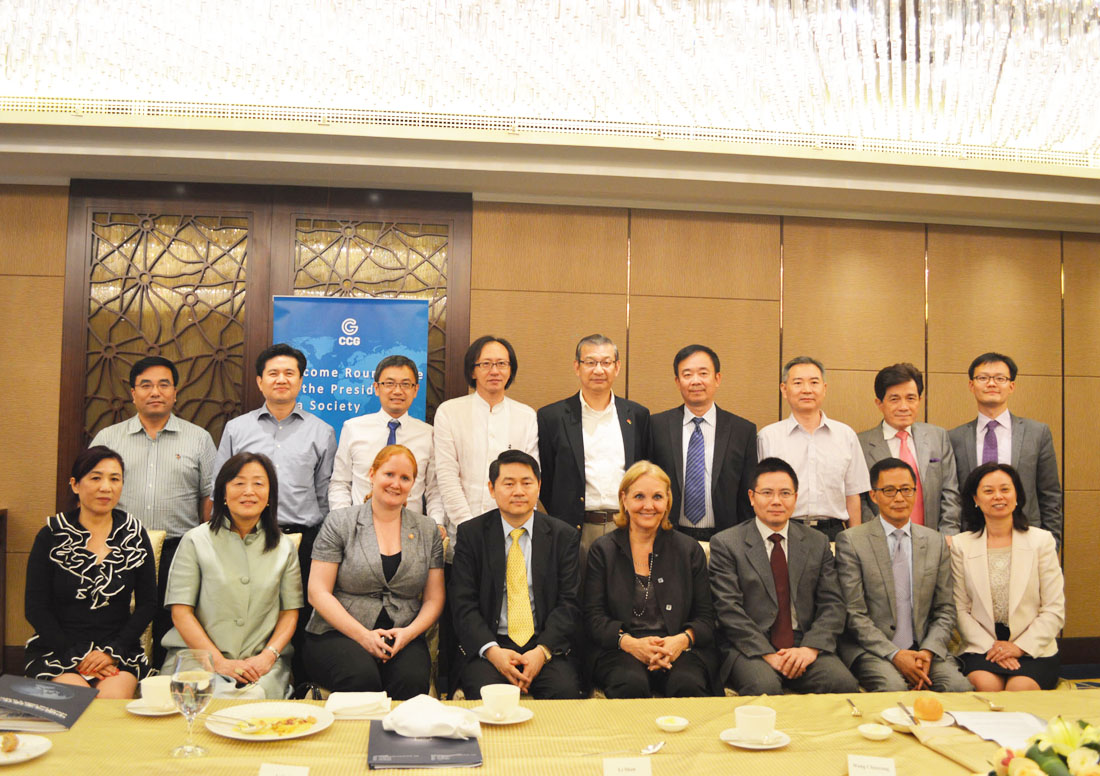CCG monthly dialogue luncheon discusses Brexit impact and implications
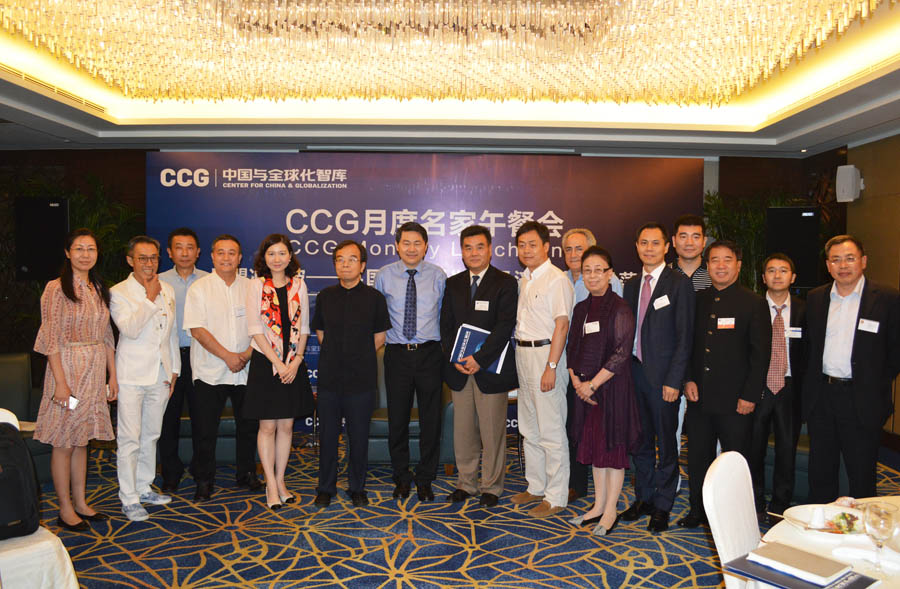
China needs to closely and calmly observe the situation following Brexit and continues to build cooperation with not only UK but also the whole Europe, top Chinese scholars stressed at CCG’s monthly dialogue luncheon on July 7.
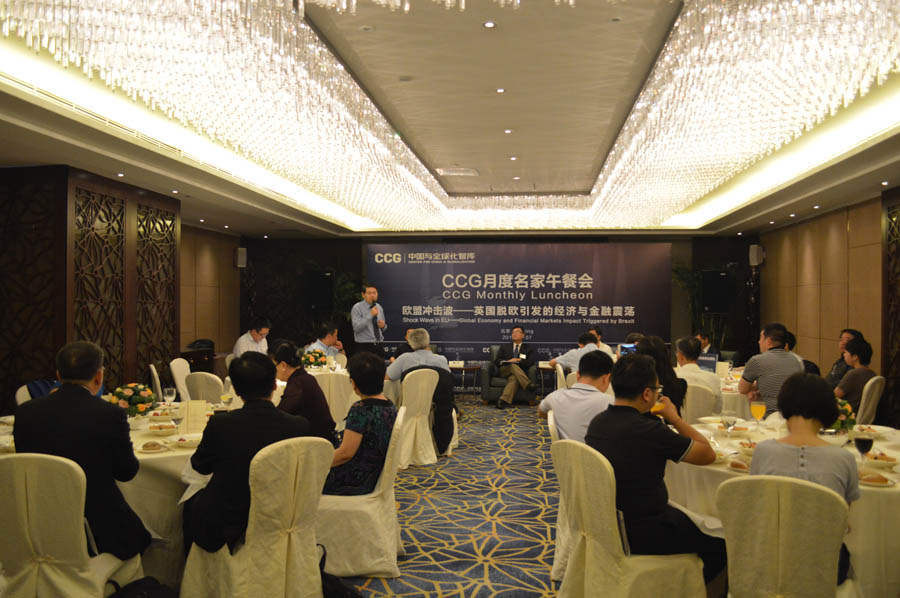
On June 24, UK’s referendum voted to withdraw from EU, or Brexit, a decision that shocked the entire world and could potentially trigger a new round of global economic turbulence. Against such a backdrop, CCG focused the July dialogue luncheon discussion on Brexit impact on Europe and the world. CCG President Wang Huiyao said at the luncheon that CCG will conduct in-depth research particularly on Brexit impact on China to identify the new challenges and opportunities for the Sino-UK relations in the post-Brexit era.
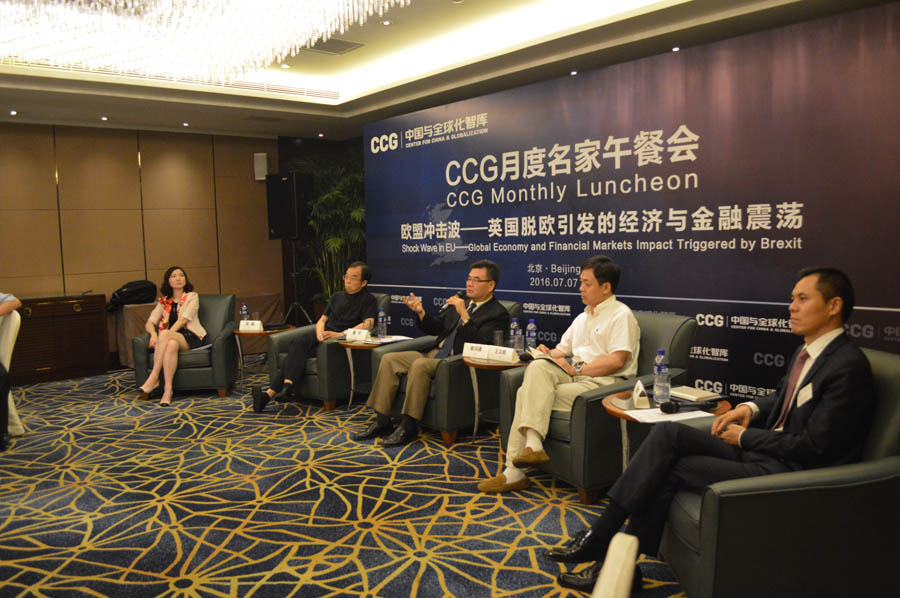
To provide sound policy advice to the government, CCG invited a number of leading scholars on EU affairs and business executives who invest in Europe to join the discussion. They discussed if and how Brexit would shake investors’ confidence in EU economy and Euro, and if there is any possibility UK could undo Brexit. Furthermore, they examined how it would impact UK’s trade and investment relations with China.
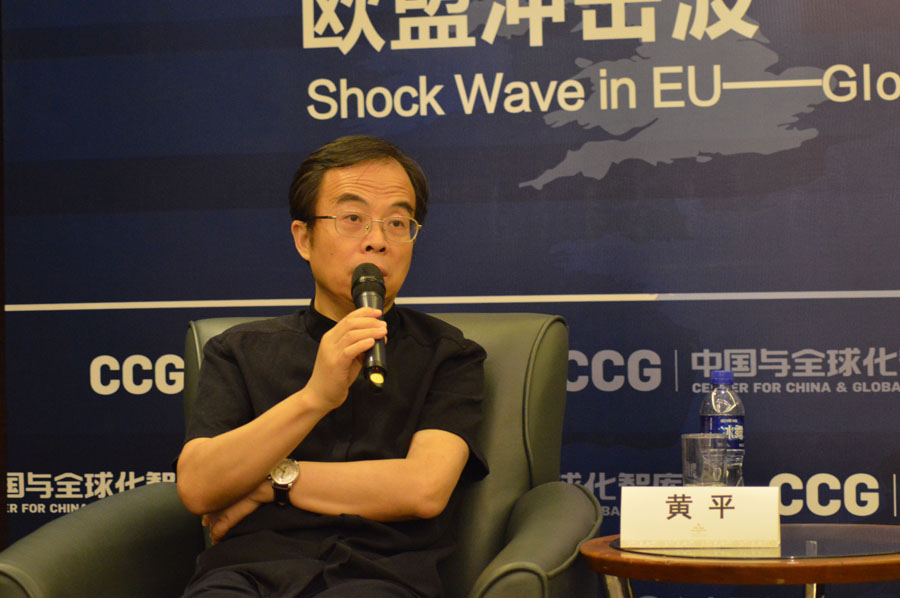
Huang Ping, Director of the Institute of European Studies at the Chinese Academy of Social Sciences believes that Brexit is not a single event but will have repercussion effect on economic growth and employment situation in many other countries. In Asia, the stock markets in Tokyo and Hong Kong have taken a strong hit. However, even after Brexit, UK will still keep close relations with Europe and London will also retain its status as the one of the most important global financial centers, he argued.
In terms of China’s response to Brexit, Huang stressed the need to remain cool-headed and forward-thinking. Since China entered into the new normal, the government has taken strategic steps to strengthen the relations with EU, UK and central and eastern European countries. While recognizing UK’s strong influence on global politics, economy and finance, China should set a broader goal to build partnership with the whole Europe. He expected that a number of agreements for cooperation programs will be signed at the China-EU Summit between July 12 and 13, including some to implement the “One Belt, One Road” initiatives.
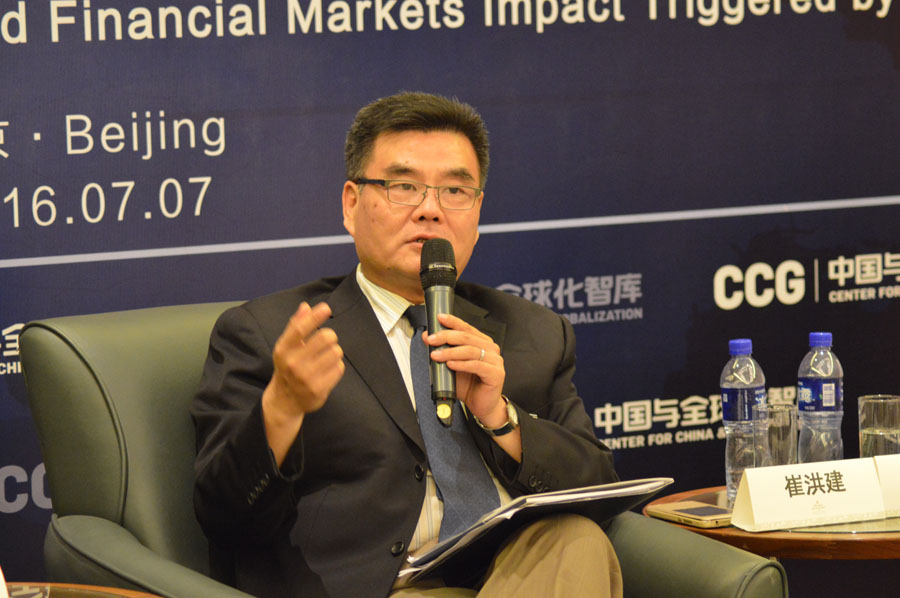
Right after the referendum, British Prime Minister Cameron announced to resign from his post. Regarding the next cabinet, Cui Hongjian, Senior Fellow and Director of European Studies at the China Institute of International Studies, believe that it will carry on with the policies in domestic and foreign affairs, remaining open-minded and moving towards globalization. He also pointed out that the biggest lesson China should learn from Brexit is to narrow the gap between the mentality of elite and general public. No grand blueprint can be realized without making them in line with public interest.
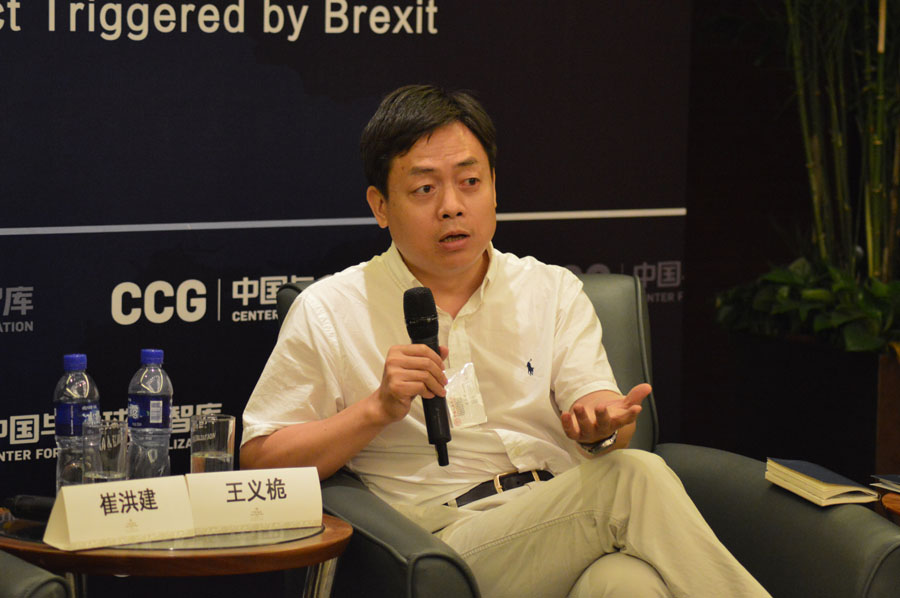
Wang Yiwei, Director of the Institute of International Affairs and the Center for EU Studies at Renmin University of China and CCG’s Senior Fellow, Brexit should not be simply considered as an act of anti-Europe integration or anti-globalization. It was partly driven by the sentiment against immigrants but partly based on rational consideration. In terms of the impact on China, he argued that Brexit is a test on China-Europe relations but can be conducive to China-UK relations in a long run, since UK may need to hold on tight to the partnership with China.
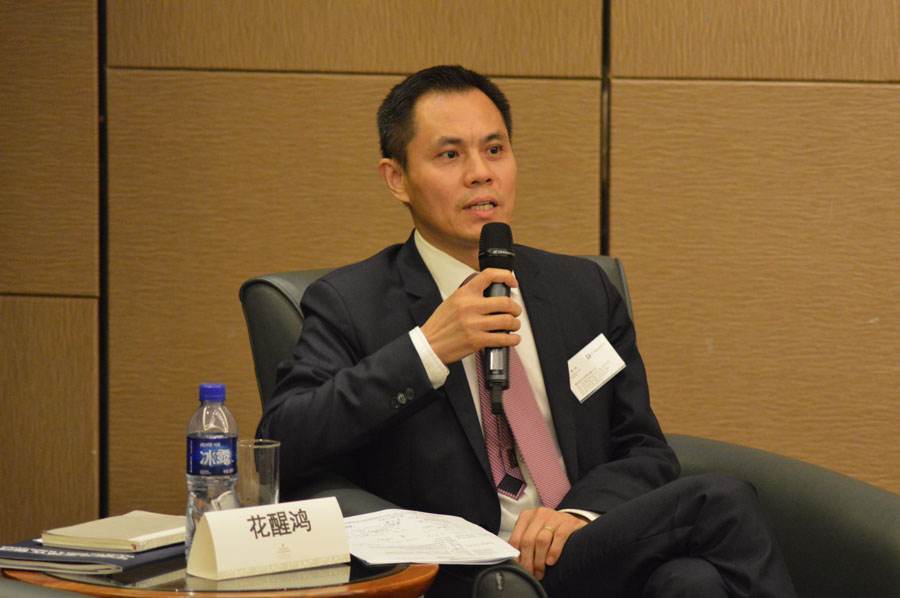
Hua Xinghong, Managing Director and Head of China of Cerberus Capital Management LP and CCG council member, believes that Brexit is an unintentional mistake made by some short-sighted people, but UK has sufficient wisdom and capability to turn the situation around. Nevertheless, globalization is an irreversible trend and should be also inclusive to tolerate different sentiment and interest.
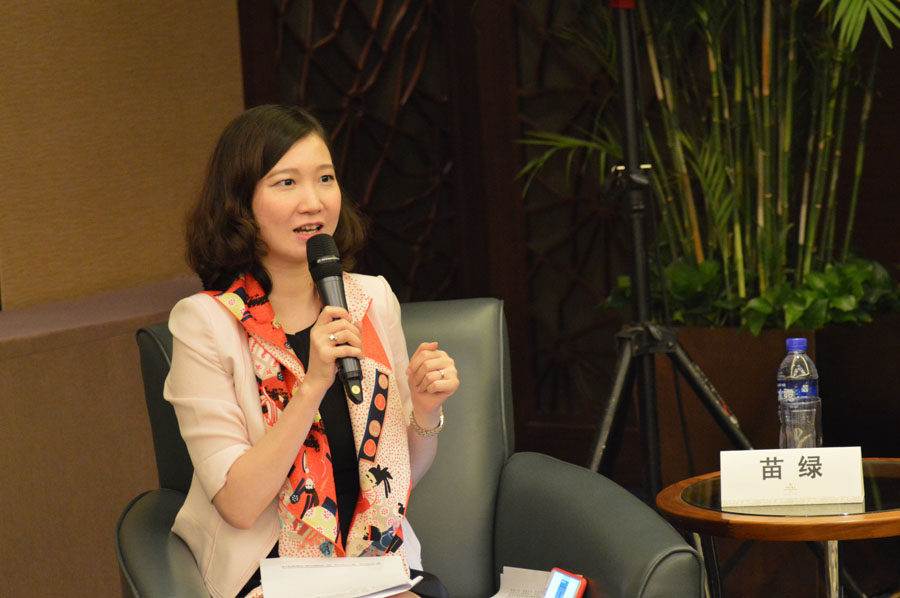
Miao Mabel Lu, General Secretary of CCG hosted the dialogue luncheon.
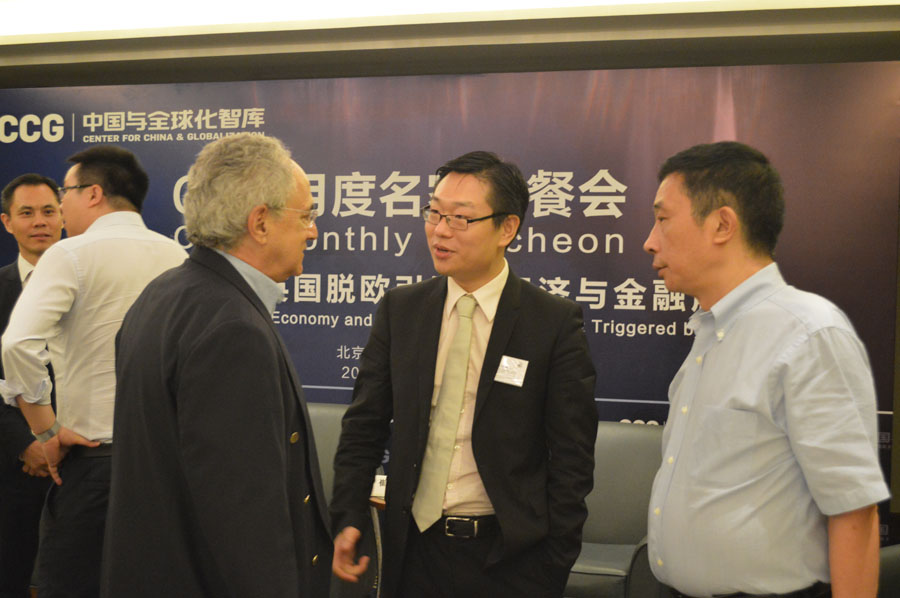
Established in January, 2015, CCG monthly dialogue luncheon is the first high-level exchange platform established by a think tank in China. It provides opportunities for Chinese business executives/industry leaders to regularly meet which Chinese and international politicians and scholars to exchange their views and thoughts about key domestic and global issues. Their opinions are compiled in policy proposal reports that CCG submits to the government ministries.
LocationBeijing


